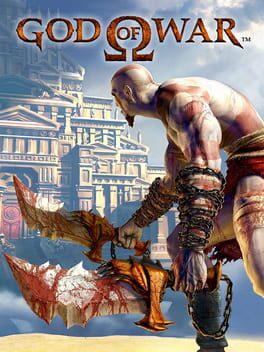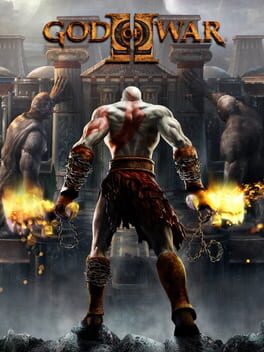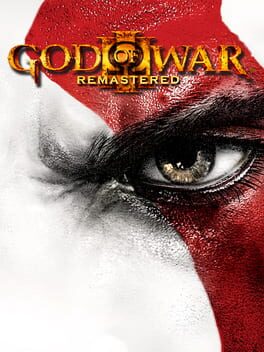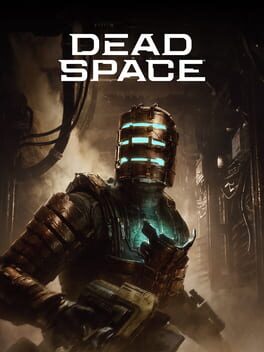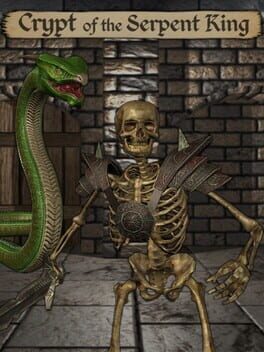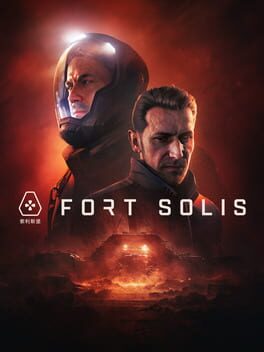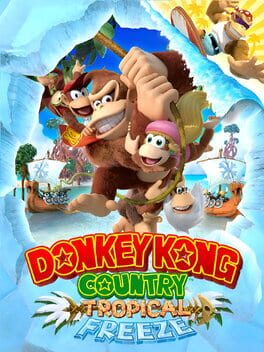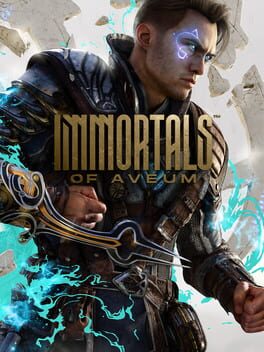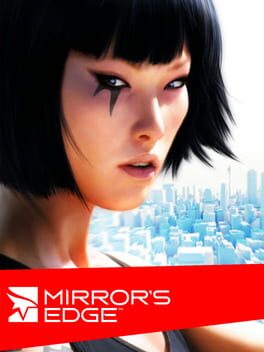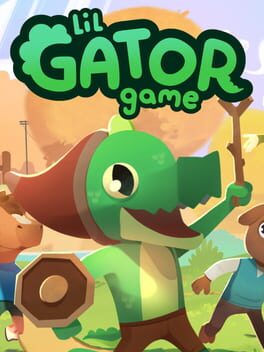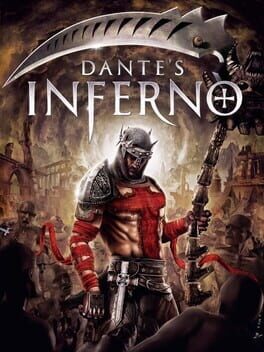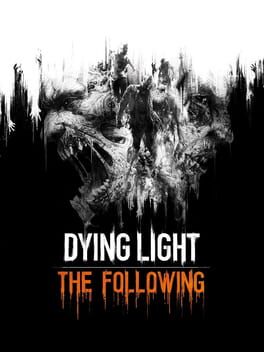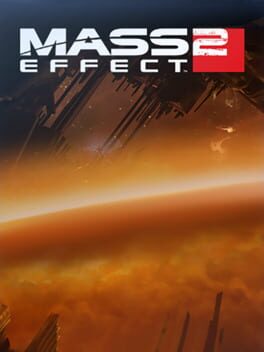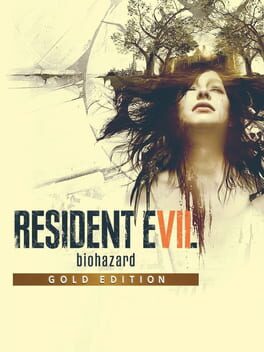Shobbrook
2005
2007
Improving in every way from the original game, we have a game with far more content. It's (mostly) the same gameplay, but with a great variety of bosses and enemies to keep it fresh where the previous title gets stale by the end. It's greatest problem is being the middle child of a trilogy, with an ending that doesn't so much act as a satisfying climax to the narrative you've just played, but rather just existing to set up the next game.
Such a legendarily epic finale to an already over-the-top trilogy. Kratos' slaughter of all the Gods of the Greek pantheon is amazing. The remaster allows this game to appeal to modern standards, with set pieces that were so ahead of their time I still think back to this game when I see modern day titles do large scale boss fights. It set the standard. Gameplay wise, this is the pinnacle of the old style of GoW combat, though I believe it would've gotten stale had they kept doing it for any longer. The gameplay overhaul of the 2018 reboot was much needed.
2023
I haven't played the original release of Dead Space, but this is a solid survival horror experience. Although "horror" may not be the right term, because this game isn't particularly scary. What it is, though, is a tightly designed experience with weighty and visceral combat, decent enemy variety and a good amount of gameplay variety across its 12 chapters. Though £70 is far too much for a roughly 11 hour game, you can get this on xbox game pass for free right now, and I would recommend giving it your time.
I must confess that I am not the biggest Mario fan, nor a big fan of any of Nintendo's big properties really. I have played very few switch games and my purchase of Mario Wonder was on a whim.
For what it's worth, I had a good amount of fun. I played through the main game while switching between single player and co-op, I used all the different characters and used as many 'badges' as possible. This led to a consistently varied experience.
The game's structuring of levels across the 7 main worlds felt great. The biggest praise I can give this game is its visuals. The other Super Mario Bros games have this bland and templated look to them, while in this one the levels are all visually distinct and colourful. The animation is also worthy of high praise; from the environment to the models of characters and creatures, it's consistently great.
Mechanically the game is quite simple, which you'd expect. The level gimmicks keep things feeling varied but none are big enough twists on gameplay to overhaul the overall experience. The titular 'Wonder' mechanic shows this best, as each level gets an additional whacky spin on the systems it's already set up. They went for a high quantity of ideas over exploring fewer ideas more thoroughly. This isn't criticism, merely an observation - it certainly keeps you entertained enough to keep playing.
In closing, I'd say the game is fun for what it is, but I didn't at all feel compelled to tackle the game's additional 'Special World' nor to strive for 100%. Once those credits rolled, I was satisfied with what I had played, but sought no more of it.
For what it's worth, I had a good amount of fun. I played through the main game while switching between single player and co-op, I used all the different characters and used as many 'badges' as possible. This led to a consistently varied experience.
The game's structuring of levels across the 7 main worlds felt great. The biggest praise I can give this game is its visuals. The other Super Mario Bros games have this bland and templated look to them, while in this one the levels are all visually distinct and colourful. The animation is also worthy of high praise; from the environment to the models of characters and creatures, it's consistently great.
Mechanically the game is quite simple, which you'd expect. The level gimmicks keep things feeling varied but none are big enough twists on gameplay to overhaul the overall experience. The titular 'Wonder' mechanic shows this best, as each level gets an additional whacky spin on the systems it's already set up. They went for a high quantity of ideas over exploring fewer ideas more thoroughly. This isn't criticism, merely an observation - it certainly keeps you entertained enough to keep playing.
In closing, I'd say the game is fun for what it is, but I didn't at all feel compelled to tackle the game's additional 'Special World' nor to strive for 100%. Once those credits rolled, I was satisfied with what I had played, but sought no more of it.
2023
There are few gaming experiences quite so miserable as playing Fort Solis. There are many measures by which you can judge a game, with gameplay, story, art and sound design / soundtrack being the key four I think.
- Fort Solis has absolutely no gameplay beyond walking around bland corridors at the slowest pace a human can possibly achieve while you interact with computers, read emails and watch video logs.
- The story is mildly interesting but dragged way too thin for how simple it is. This entire narrative could be told in 30 minutes, yet they stretch it to 4 agonising hours of nothing. Literally nothing at times. The dialogue between the two leads during chapter one and two is uninteresting, but at least it exists! Once you reach chapter 3, there is no more banter - only crushing silence as you backtrack. Chapter 4 sees the climax finally arrive, and it has the gall to be a tragic ending. So I walk around a space station for 4 tedious hours and I didn't even get the gratification of a cathartic finale.
- The art is okay. It's graphically stunning, but that is the alter to which everything else was sacrificed. And while it is impressive, there are no real stand out areas. If you've ever consumed any piece of sci-fi media, you've experienced the world of Fort Solis. It's all bland grey corridors and there's a constant sand storm so even the surface of Mars is dull.
- There is no music, save for the song that plays in the credits. I must admit, the song is pretty good - but a good credits song should top off a memorable experience, not be the highlight of the ENTIRE game. There is no stand out elements of diegetic sound design to comment on. The voice acting is good; they brought in some solid talent, but the script allows for none of them to shine. Save for the ending battle, where Roger Clark's (as Jack) cries of pain felt quite viscerally real. But just play RDR2 if you wanna hear a good performance from Roger Clark. And just play TLOU if you want to hear a good performance from Troy Baker (who is the villain in this trash).
So there, this is a disaster and is an example of how a push for graphics and realism has utterly destroyed what could maybe have been a good idea.
- Fort Solis has absolutely no gameplay beyond walking around bland corridors at the slowest pace a human can possibly achieve while you interact with computers, read emails and watch video logs.
- The story is mildly interesting but dragged way too thin for how simple it is. This entire narrative could be told in 30 minutes, yet they stretch it to 4 agonising hours of nothing. Literally nothing at times. The dialogue between the two leads during chapter one and two is uninteresting, but at least it exists! Once you reach chapter 3, there is no more banter - only crushing silence as you backtrack. Chapter 4 sees the climax finally arrive, and it has the gall to be a tragic ending. So I walk around a space station for 4 tedious hours and I didn't even get the gratification of a cathartic finale.
- The art is okay. It's graphically stunning, but that is the alter to which everything else was sacrificed. And while it is impressive, there are no real stand out areas. If you've ever consumed any piece of sci-fi media, you've experienced the world of Fort Solis. It's all bland grey corridors and there's a constant sand storm so even the surface of Mars is dull.
- There is no music, save for the song that plays in the credits. I must admit, the song is pretty good - but a good credits song should top off a memorable experience, not be the highlight of the ENTIRE game. There is no stand out elements of diegetic sound design to comment on. The voice acting is good; they brought in some solid talent, but the script allows for none of them to shine. Save for the ending battle, where Roger Clark's (as Jack) cries of pain felt quite viscerally real. But just play RDR2 if you wanna hear a good performance from Roger Clark. And just play TLOU if you want to hear a good performance from Troy Baker (who is the villain in this trash).
So there, this is a disaster and is an example of how a push for graphics and realism has utterly destroyed what could maybe have been a good idea.
The original Donkey Kong Country Returns on the WII was a game I very much enjoyed as a kid, and one that I replayed on the 3DS port last year - finding that it still held up very well. I never, however, played the sequel. After all these years, I’m glad that I finally got around to it, because it is great!
What sets this game apart from other Nintendo platformers (and platformers in general, mostly) is that everything is consistently framed within the game’s context. That is - all the platforms are actually things that believably exist within the world, and aren’t just floating blocks. This seems a small difference, but this aspect of art direction places this game far above just about any other platformer on the market in my opinion; this now sits comfortably as one of my favourite 2D platformers ever.
So the graphics and art design is great, but so is the soundtrack - every single one is an absolute banger. I really don’t understand enough about music to be able to tell you why it is so good but once you play the game, you’ll understand. This is quite typical from Nintendo though, they quite often have some of the best music in the whole industry.
The gameplay is also very solid and a cut above most contempories of the genre. It’s quite simple, at least in terms of the player moveset, but the level design remains constantly engaging and thoroughly challenging. Paired with the smooth animations of both the player character and what they are interacting with and you have a game that just feels good to play.
The boss fights here, although few in number, are fun across the board too - with maybe the exception of the fourth world boss. The pufferfish boss Fuga is fought with entirely underwater mechanics, which I didn’t really enjoy in this game. Water traversal is very hard to get right in videogames, there is literally decades worth of examples of this fact, and while it certainly isn’t terrible in this game, it represented the games lowest point for me. I thought the foruth world was easily the weakest of the six purely due to it being water themed and therefore relying heavily on that stiff water movement. It’s something about how DK maintains momentum for longer than is comfortable, meaning that you drift into hazards that you see coming but can do nothing about. Maybe this was just me going too quickly for the levels pace and isn’t a common problem, but it plagued all of world 4 for me.
To balance out that criticism, world 5 was my personal favourite world in all aspects - gameplay mechanics, theme and boss fight. The uniqueness of all the different world themes is impressive and one of the games most commendable aspects. The previous game had pretty good variety too, the devs for these two games really get how to make a world memorable.
Little side note: the fact that minecarts and rocket barrels now have three hit points instead of just immediately being destroyed in one hit makes those levels so much more tolerable compared to the previous game. Sure, it makes them way easier, but the difficulty in those levels always felt artificial to me anyway.
What sets this game apart from other Nintendo platformers (and platformers in general, mostly) is that everything is consistently framed within the game’s context. That is - all the platforms are actually things that believably exist within the world, and aren’t just floating blocks. This seems a small difference, but this aspect of art direction places this game far above just about any other platformer on the market in my opinion; this now sits comfortably as one of my favourite 2D platformers ever.
So the graphics and art design is great, but so is the soundtrack - every single one is an absolute banger. I really don’t understand enough about music to be able to tell you why it is so good but once you play the game, you’ll understand. This is quite typical from Nintendo though, they quite often have some of the best music in the whole industry.
The gameplay is also very solid and a cut above most contempories of the genre. It’s quite simple, at least in terms of the player moveset, but the level design remains constantly engaging and thoroughly challenging. Paired with the smooth animations of both the player character and what they are interacting with and you have a game that just feels good to play.
The boss fights here, although few in number, are fun across the board too - with maybe the exception of the fourth world boss. The pufferfish boss Fuga is fought with entirely underwater mechanics, which I didn’t really enjoy in this game. Water traversal is very hard to get right in videogames, there is literally decades worth of examples of this fact, and while it certainly isn’t terrible in this game, it represented the games lowest point for me. I thought the foruth world was easily the weakest of the six purely due to it being water themed and therefore relying heavily on that stiff water movement. It’s something about how DK maintains momentum for longer than is comfortable, meaning that you drift into hazards that you see coming but can do nothing about. Maybe this was just me going too quickly for the levels pace and isn’t a common problem, but it plagued all of world 4 for me.
To balance out that criticism, world 5 was my personal favourite world in all aspects - gameplay mechanics, theme and boss fight. The uniqueness of all the different world themes is impressive and one of the games most commendable aspects. The previous game had pretty good variety too, the devs for these two games really get how to make a world memorable.
Little side note: the fact that minecarts and rocket barrels now have three hit points instead of just immediately being destroyed in one hit makes those levels so much more tolerable compared to the previous game. Sure, it makes them way easier, but the difficulty in those levels always felt artificial to me anyway.
2023
The fundamental problem with Immortals of Aveum is that it is so utterly standard. I’ve never seen a game exactly like it, but I have certainly seen a lot of games that are very similar. I suppose it isn’t bad, and there is clear love put into the project, but I feel the effort was misplaced.
The narrative is what really hampers any potential enjoyment that might’ve been had. It’s worldbuilding is so simple yet has that problem a lot of games do where the characters just start throwing so many names and concepts around that it jsut becomes white noise. Seriously, basically every single line out of any character’s mouth with involve the name of someone, some place or some high concept regarding the political and magical systems. The result is a world that feels alien in all the wrong ways - it just existed as nice set dressing to me as I found it so utterly inpenetrable for the majority of the runtime. However in the closing hours of the game I did grow to appreciate the world building a bit more. The ending stretch of the plot, while flawed, is satisfying enough and I found that I was almost growing to like the game by the end.
The characters all leave nothing to latch on to. Both allies and villains alike are all incredibly uninteresting at best, while at their worst they can be absolutely intolerable. The dialogue is bad, both for its over-indulgence in exposition and just because they are poorly written lines. If I said it was Marvel-esque dialogue, that would be an apt fit - loathed as I am to use that as a point of comparison. It sacrifices it’s own potentially gripping tone to cram one-liners in all the time. Certain characters are worse for this than others, but the worst ones always seem to be hanging around to drag everyone down. All these weak links circle around a protagonist who is simply uninteresting and unlikable. I don’t care for his story one bit and I found him to be gratingly whiny. What happens to him right at the end is one of the laziest bits of writing I’ve seen in a hot minute, but I won’t spoil it.
The combat is the game’s fundamental flaw, which is a shame because it could’ve been the high point. However, throwing bolts of light at enemies that have no visable reaction is the antithesis of a visceral feeling combat engine. It’s sad, because there’s some okay ideas in there. The range of different spells is impressive, and the various enemy types are designed to be best tackled with a varied approach. But it just doesn’t feel good - and when the health bars get spongy in the mid to late game it feels even worse. I’d praise the game’s enemy variety, but it unfortunately stagnates about a third of the way in. The game opens with so many new types of foe being constantly introduced, and there’s a cool variety of early game bosses too. But then it just stops; boss fights become very infrequent and most of those early game bosses keep getting brought back as frustrating standard encounters, bogging down the pacing with their huge health bars and ridiculously high damaging attacks.
The game’s art direction was the clear focus and I will admit it does a great job. While the gameplay becomes repetitive, the world remains grand in scale and unique in presentation. The highlight for me has to be the sequence where you battle in and around the giant body of a colossus as it wades through the sea - that was just great start to finish. It is graphically very impressive (despite semi-frequent frame drops), however there is too much visual clutter during combat as everyone throws their light powers around. As stunning as the environments are, everything becomes a blur of flashing lights and HUD elements when any battle begins. It is common to not be able to see the enemy you are trying to shoot, which is great evidence that maybe they should've toned down the effects a bit.
In conclusion, this is a flawed title that is hampered by a lot of mixed elements. The open world, the gear mechanics, the skill tree; it’s all unnecessary additions to what could've been a much tighter experience. It might also have benefitted from writers that actually know how to write compelling dialogue.
The narrative is what really hampers any potential enjoyment that might’ve been had. It’s worldbuilding is so simple yet has that problem a lot of games do where the characters just start throwing so many names and concepts around that it jsut becomes white noise. Seriously, basically every single line out of any character’s mouth with involve the name of someone, some place or some high concept regarding the political and magical systems. The result is a world that feels alien in all the wrong ways - it just existed as nice set dressing to me as I found it so utterly inpenetrable for the majority of the runtime. However in the closing hours of the game I did grow to appreciate the world building a bit more. The ending stretch of the plot, while flawed, is satisfying enough and I found that I was almost growing to like the game by the end.
The characters all leave nothing to latch on to. Both allies and villains alike are all incredibly uninteresting at best, while at their worst they can be absolutely intolerable. The dialogue is bad, both for its over-indulgence in exposition and just because they are poorly written lines. If I said it was Marvel-esque dialogue, that would be an apt fit - loathed as I am to use that as a point of comparison. It sacrifices it’s own potentially gripping tone to cram one-liners in all the time. Certain characters are worse for this than others, but the worst ones always seem to be hanging around to drag everyone down. All these weak links circle around a protagonist who is simply uninteresting and unlikable. I don’t care for his story one bit and I found him to be gratingly whiny. What happens to him right at the end is one of the laziest bits of writing I’ve seen in a hot minute, but I won’t spoil it.
The combat is the game’s fundamental flaw, which is a shame because it could’ve been the high point. However, throwing bolts of light at enemies that have no visable reaction is the antithesis of a visceral feeling combat engine. It’s sad, because there’s some okay ideas in there. The range of different spells is impressive, and the various enemy types are designed to be best tackled with a varied approach. But it just doesn’t feel good - and when the health bars get spongy in the mid to late game it feels even worse. I’d praise the game’s enemy variety, but it unfortunately stagnates about a third of the way in. The game opens with so many new types of foe being constantly introduced, and there’s a cool variety of early game bosses too. But then it just stops; boss fights become very infrequent and most of those early game bosses keep getting brought back as frustrating standard encounters, bogging down the pacing with their huge health bars and ridiculously high damaging attacks.
The game’s art direction was the clear focus and I will admit it does a great job. While the gameplay becomes repetitive, the world remains grand in scale and unique in presentation. The highlight for me has to be the sequence where you battle in and around the giant body of a colossus as it wades through the sea - that was just great start to finish. It is graphically very impressive (despite semi-frequent frame drops), however there is too much visual clutter during combat as everyone throws their light powers around. As stunning as the environments are, everything becomes a blur of flashing lights and HUD elements when any battle begins. It is common to not be able to see the enemy you are trying to shoot, which is great evidence that maybe they should've toned down the effects a bit.
In conclusion, this is a flawed title that is hampered by a lot of mixed elements. The open world, the gear mechanics, the skill tree; it’s all unnecessary additions to what could've been a much tighter experience. It might also have benefitted from writers that actually know how to write compelling dialogue.
2008
Mirror's Edge excels at two things: art style and first-person parkour. This fictional world is full of bright colours contrasted against harshly bright whites and it looks amazing. This does not look like a game from 2008. However, the cutscenes do not look anywhere near as good. The 2D animation looks terrible, frankly. They are a tiny portion of the game, but they look so awful I have to wonder why they even bothered.
The free form parkour is the game's main selling point, of course, and it works very well. I can tell it does because there is a lot of room for error. Only towards the end of the game did I feel like I'd acquired any sort of skill with the systems, and that allowing for genuine player skill growth and learning was refreshing.
However, outside of these two points I find little to recommend about Mirror's Edge. I think the level design, while looking nice, doesn't adequately inform you of where to go sometimes. Even with the button that jerks your head towards your destination, sometimes I found that the route to get there is unnecessarily confusing. This is highlighted best by the big tower climb section in Chapter 8, which begins by having you go to a small dark corner of the room and doing a backwards wall jump to an equally dark area you can't even see. Optional collectable areas are sometimes better telegraphed than the critical path, and that is a problem.
The other big problem is that these levels almost always take place in small cramped buildings instead of outside. The game is at its peak when you're jumping from rooftop to rooftop, but that makes up a surprisingly small amount of playtime compared to the hours of navigating vents, elevators and corridors.
The game's biggest flaw is the story. It's just so uninspired and boring. Nothing happens; all the allies and villains alike are equally dull; the plot twists don't land because they're incredibly obvious (the masked killer is so obviously Celeste that I'm not even going to put a spoiler warning on it, and if you care then I am sorry but no one in the game's plot does so I wonder why you do) and it ends with nothing being achieved and everything being exactly the same it was at the beginning - minus a few characters being dead. It was terrible. I get that this is a game that is meant to be replayed a bunch, that's why it's about 5 hours long at most, but they could have put something better than this together...
All in all, Mirror's Edge is flawed. But I liked it all the same. The gameplay loop is strangely addicting. For all my critique, I can definitely see myself revisiting this - this time skipping every cutscene so I can enjoy the parkour as much as possible. The combat in this game sucks too by the way, but I think it's meant to so it hardly matters.
The free form parkour is the game's main selling point, of course, and it works very well. I can tell it does because there is a lot of room for error. Only towards the end of the game did I feel like I'd acquired any sort of skill with the systems, and that allowing for genuine player skill growth and learning was refreshing.
However, outside of these two points I find little to recommend about Mirror's Edge. I think the level design, while looking nice, doesn't adequately inform you of where to go sometimes. Even with the button that jerks your head towards your destination, sometimes I found that the route to get there is unnecessarily confusing. This is highlighted best by the big tower climb section in Chapter 8, which begins by having you go to a small dark corner of the room and doing a backwards wall jump to an equally dark area you can't even see. Optional collectable areas are sometimes better telegraphed than the critical path, and that is a problem.
The other big problem is that these levels almost always take place in small cramped buildings instead of outside. The game is at its peak when you're jumping from rooftop to rooftop, but that makes up a surprisingly small amount of playtime compared to the hours of navigating vents, elevators and corridors.
The game's biggest flaw is the story. It's just so uninspired and boring. Nothing happens; all the allies and villains alike are equally dull; the plot twists don't land because they're incredibly obvious (the masked killer is so obviously Celeste that I'm not even going to put a spoiler warning on it, and if you care then I am sorry but no one in the game's plot does so I wonder why you do) and it ends with nothing being achieved and everything being exactly the same it was at the beginning - minus a few characters being dead. It was terrible. I get that this is a game that is meant to be replayed a bunch, that's why it's about 5 hours long at most, but they could have put something better than this together...
All in all, Mirror's Edge is flawed. But I liked it all the same. The gameplay loop is strangely addicting. For all my critique, I can definitely see myself revisiting this - this time skipping every cutscene so I can enjoy the parkour as much as possible. The combat in this game sucks too by the way, but I think it's meant to so it hardly matters.
2022
This isn't the type of game that I usually play. It isn't a title with a lot of substance, but I enjoyed it for the simple and heartwarming little adventure that it's meant to be. It's quite a lot like A Short Hike, which I also quite enjoyed for what it was, and I can't say which of the two I really enjoyed more. So I won't bother wondering about it - they are both good games to just chill and relax playing. Do I recommend Lil Gator Game? I can't say that I do really, but it's very sweet and inoffensive and there are worse ways to spend a few hours. The graphics are charming, the soundtrack is upbeat, and the dialogue is snappy enough that it never became a slog to sit through. There's some good pieces of writing in here - the part where the sister buys the ice creams is my favourite.
2010
This game started off so strong but devolved into the most laborious action-adventure game I've played in some time. The opening of this game sees you fighting Death in a badass 1v1, then the opening levels are brimming with visual variety and constantly introduce new enemy types. Then I guess the budget ran out, because nothing new gets introduced and all the levels begin to look exactly the same. You also begin to realise that there is no variety in the combat or the game systems - it's all just a series of doing the same thing over and over. The (very) occasional boss fight doesn't break the monotony because they look visually impressive but are mechanically indistinct from regular foes. The unique enemies all but disappear as you just fight the same demons and birds until the game meanders to a boring conclusion to the most uninspired game story ever written. This game was fun, for a time, but cannot sustain itself even through its poultry runtime.
The Following takes everything fun about base game Dying Light and omits it, instead making you engage in the car mechanics. Unless the car gets stuck (which it always does) and then you have to run across miles of fields to a car respawn point. Also, they added Volatiles who can kill you in one hit regardless of your stats, and they run faster than the car going full speed.
2021
